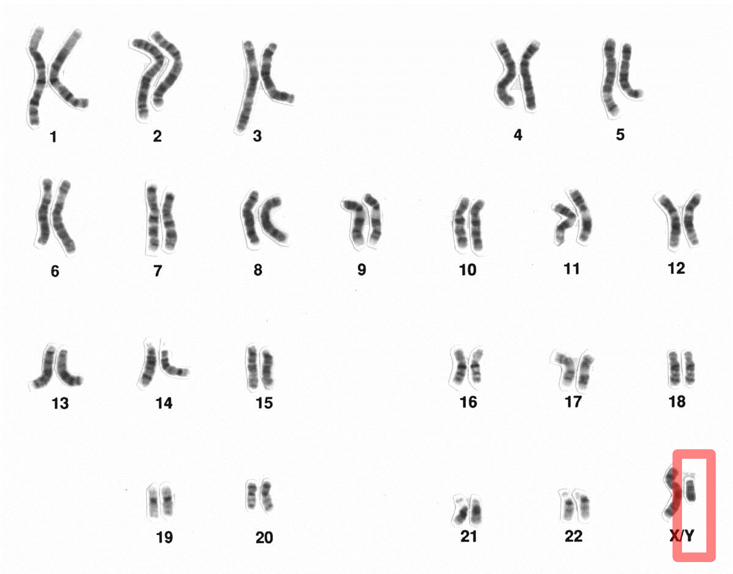Almost a decade ago, I gave myself a gift. I paid to have my Y chromosome analyzed as a part of a global study: "The Genographic Project was launched in 2005 as a research project in collaboration with scientists and universities around the world with a goal of revealing patterns of human migration."
It was about the old story of migration out of Africa, and not about uncovering any mysteries in my heritage. There isn't any mystery about my people. I was glad to help researchers figure out the migratory paths our ancestors took while moving out of Africa into the different corners of the planet that we now inhabit. And, incidentally, find out the geography of my own genes.
Only a man, who has the XY chromosomes can pass the Y chromosome on to a new generation. I opted to get this Y chromosome mapped. Back then, the technology was expensive and I didn't want to spend a lot of money on this in order to map the X chromosome too.
The result did not surprise me. My people have lived in the Subcontinent for a long time.
The man who gave rise to the first genetic marker in your lineage probably lived in northeast Africa in the region of the Rift Valley, perhaps in present-day Ethiopia, Kenya, or Tanzania, some 31,000 to 79,000 years ago. Scientists put the most likely date for when he lived at around 50,000 years ago. His descendants became the only lineage to survive outside of Africa, making him the common ancestor of every non-African man living today. ...
Your ancestors, having migrated north out of Africa into the Middle East, then traveled both east and west along this Central Asian superhighway. A smaller group continued moving north from the Middle East to Anatolia and the Balkans, trading familiar grasslands for forests and high country.
The man who gave rise to marker M20 was born in India or the Middle East. Your ancestors arrived in India around 30,000 years ago and represent the earliest significant settlement of India. For this reason, haplogroup L (M61) is known as the Indian Clan.
But--and this is important--my ancestral father who came to India about 30,000 years ago was not among the first people to come to the Subcontinent.
Although more than 50 percent of southern Indians carry marker M20 and are members of haplogroup L (M61), your ancestors were not the first people to reach India; descendants of an early wave of migration out of Africa that took place some 50,000 to 60,000 years ago had already settled in small groups along the southern coastline of the sub-continent.
By the time he arrived in India, he was an immigrant in a land that was already populated, and this was about 30,000 years ago!
When we take such a long view of where we come from, we will lead humbled lives. We won't care to think about whether we are different from others, and whether there are some who are inferior or superior to us. We will recognize our shared past and work together as one.
In this big story, there are millions and millions of subplots. One of those is told in this fascinating essay in The New Yorker. It is about skeletons in a high altitude Himalayan lake, Roopkund, that is frozen for most of the year. Who were those people?
In the process of describing how genetics is helping uncover the mystery, the essay discusses how science helped piece together a story of Europeans by looking at the Y chromosome evidence of the Yamnaya. The "power of ancient DNA to reveal cultural events":
In the Iberian study, the predominant Y chromosome seems to have originated with a group called the Yamnaya, who arose about five thousand years ago, in the steppes north of the Black Sea and the Caspian Sea. By adopting the wheel and the horse, they became powerful and fearsome nomads, expanding westward into Europe as well as east- and southward into India. They spoke proto-Indo-European languages, from which most of the languages of Europe and many South Asian languages now spring. Archeologists have long known about the spread of the Yamnaya, but almost nothing in the archeological record showed the brutality of their takeover.
I was born into a family of Brahmins whose Vedic beliefs was orally transmitted and later written down in Sanskrit, which was derived from the language spoken by the Yamnaya. How did this happen, and when did this happen? What happened to my ancestral people who arrived in the Subcontinent more than 20,000 years before the Indo-Europeans arrived from the Caucasus? How do all these stories square with the civilized human being that I am?
Some day, we will understand many such mysteries of how we came about.

